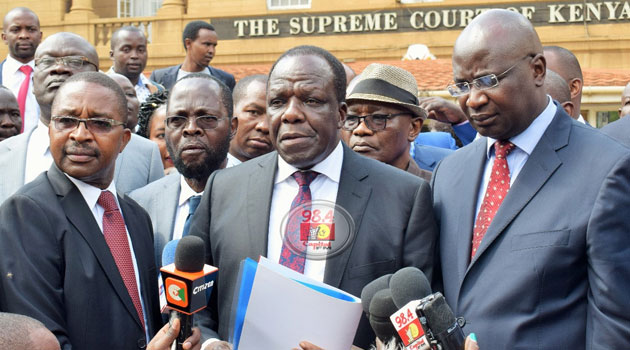NAIROBI, Kenya, Oct 13 – The Council of Governors has rejected a proposal by the Commission on Revenue Allocation (CRA) to retain the revenue allocation shared among counties at Sh370bn in the 2022/23 financial year.
Counties were allocated a similar amount in October 2020 to finance the 2020/21 budgets after protracted negotiations which culminated in the review of an initially recommended allocation of Sh316 billion to Sh368.9 billion.
The 2020/21 allocation entailed an equitable share component of Sh316.5 billion and Sh13.7 billion in conditional grants.
Reacting to the proposed retention of the allocation, the governors’ council dismissed reasons for the non-increment cited by the CRA which included slow revenue growth, constrained fiscal framework, need to contain the public wage bill and the need to finance and provide security for the August 9, 2022 General Election.
“We reject in toto the proposal by CRA that recommends a non-increment to the County Equitable Share… CRA’s proposal does not reflect and is not commensurate to the growth in revenue,” the council stated in a statement issued on Wednesday.
In its response, CoG reiterated its demand for an allocation not falling short of 35 per cent of revenues collected by the national government.
The organ representing 47 county governments justified its demand saying more resources were needed in counties to reinvigorate the economy and jumpstart the much-needed recovery from the meltdown occasioned by the coronavirus pandemic.
“In view of the country’s economic situation, there is need for economic stimulation as a measure to spur economic recovery and growth. This can only be achieved through increased resources to county governments,” Laikipia Governor Nderitu Mureithi, who chairs the council’s finance committee, said.
The governor’s council further argued that the allocation should correspond with the increase in revenue, with projections estimating revenue for the 2022/23 financial year at Sh2.2 trillion up from the Sh1.8 trillion projected in 2021/22.
A quarterly reported released by the Kenya Revenue Authority (KRA) on October 4 indicated the tax agency had surpassed its Sh461.7 billion target for the July-September quarter by Sh15 billion.
“The performance reflects a sustained revenue growth in the first three months of the year, with a performance rate of 103.2 per cent and growth of 30 per cent,” the agency reported.
KRA exceeded its July target with a surplus of Sh311 million having realized Sh152.9 billion at the start of the financial year.
The agency’s projections for the second half of the financial year are however under threat following multiple attempts to review taxes downwards in a bid to cushion an overburdened taxpayer.
In September for instance, the High Court invalidated a provision of the Income Tax Act requiring the payment of minimum tax at the rate of 1 per cent of gross turnover which came into effect on January 1.
The provision, seen as a plan by government to narrow a fiscal deficit estimated at about 7.5 per cent of the Gross Domestic Product, made it mandatory for payment of tax even when a business makes loses, sparking condemnation from owners of small and medium enterprises.
Justice George Odunga said Section 12D introduced by the Finance Act through the Tax Laws (Amendment) (No. 2) Act, 2020 “violates Article 201(b) (i) of the Constitution and as such null and void.”
The court verdict followed a petition filed in Machakos by official of Kitengela Bar Owners Association, Kenya Association of Manufacturers, Retail Trade Association of Kenya and the Kenya Flower Council.
The National Assembly is also considering halving tax rates on petroleum products amid a sustained outcry over the rising cost of fuel.
Taxes earmarked for review include a 16 per cent VAT charge on LPG which has been linked to an aggressive increase in the price of cooking gas.
The 8 per cent VAT charge on petrol, diesel, kerosene could also be reduced to 4 per cent if the House adopts a report by the departmental committee on finance.























































